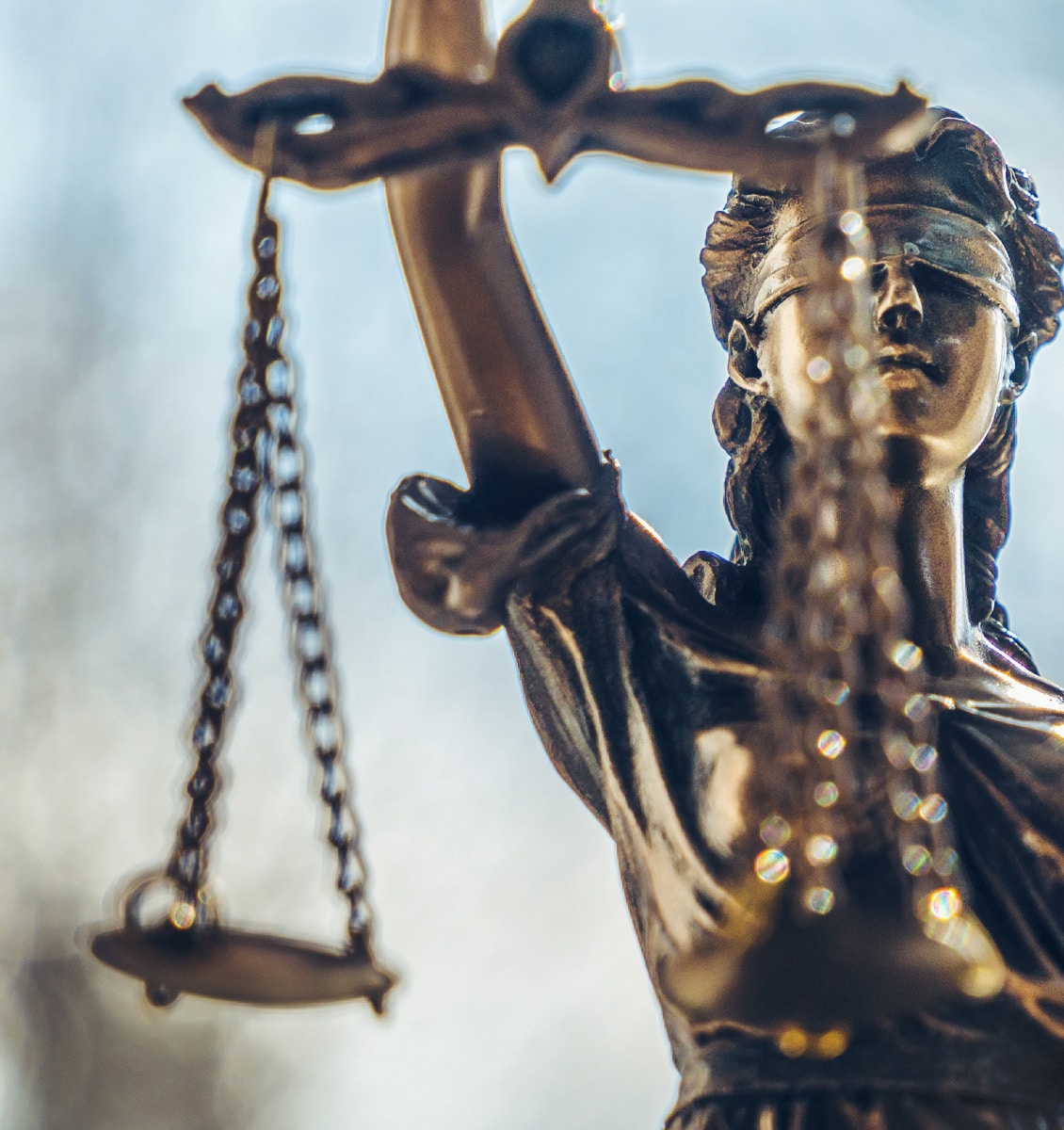Going through a divorce is tough, emotionally, financially, and legally. One big concern many people have is what happens to retirement savings. After all, you’ve likely spent years building up those accounts. So, how can you make sure your future stays secure? In this blog, we’ll break down everything you need to know about retirement accounts in a divorce and how to make sure you’re dividing assets in divorce fairly. If you live in New York or New Jersey, Krasner Law is here to help guide you through the process.
What Happens to Retirement Accounts in a Divorce?
When you’re going through a divorce, figuring out how to divide everything you’ve built together can be overwhelming. This includes your home, bank accounts, and yes, even your retirement savings. Retirement accounts are often one of the biggest assets a couple owns, so it’s important to understand how they’re handled.
If you live in New York or New Jersey, the court uses a process called equitable distribution. That means the goal isn’t to split everything exactly 50/50, it’s to divide things in a way that’s fair. What’s considered “fair” depends on many things, like how long you were married, your financial situation, and what each of you contributed to the marriage.
Are Retirement Accounts Always Split?
Not always, but in most cases, at least part of your retirement account will be considered marital property, which means it gets divided in the divorce. Even if the account is only in your name, the money you saved during the marriage likely belongs to both of you.
Let’s say you had a 401(k) before you got married. That money may be considered separate property, and you can usually keep it. But any new contributions made during the marriage, and the interest earned on those contributions, will likely be divided.
Why Does the Timing Matter?
The court looks at when the money was earned. Money saved or invested during the marriage is usually shared. Money saved before the wedding or after a legal separation is typically off-limits in the divorce, unless it was mixed with marital money or used in a way that benefited both spouses.
This is why having a clear record of your account statements can really help. If you can show what you had before the marriage, your lawyer can help make sure it’s protected.
What if One Spouse Didn’t Work?
It doesn’t matter if only one spouse earned the paycheck. The law recognizes that both people contribute to the marriage in different ways. One person might earn income while the other stays home to raise kids or manage the household. That’s why retirement savings built during the marriage are still considered shared property.
Can We Decide How to Divide Retirement Accounts Ourselves?
Yes! If you and your spouse agree on how to split your retirement savings (and other assets), you can include that in your settlement or separation agreement. This can help you avoid a long court battle, but it’s still important to have a lawyer review it. They’ll make sure it’s fair, legal, and protects you in the long run.
Why Is a Lawyer So Important?
Dividing retirement accounts isn’t always simple. There are tax rules, penalties, and paperwork involved, especially with accounts like 401(k)s or pensions. A lawyer can help you:
- Figure out what’s marital vs. separate property
- Make sure you don’t lose more than you should
- Prepare legal documents like a Qualified Domestic Relations Order (QDRO)
- Avoid costly mistakes, like early withdrawal penalties
At Krasner Law, we understand how important your future financial security is. We work closely with you to make sure your retirement assets are handled properly and fairly, so you can move forward with confidence.
Types of Retirement Accounts That Come Up in Divorce
There are a few main types of retirement accounts that people deal with during divorce. Each one is handled a little differently:
- 401(k)s and 403(b)s – These are workplace retirement plans. To divide these accounts, you’ll usually need something called a Qualified Domestic Relations Order (QDRO). This legal document allows funds to be transferred without extra taxes or penalties.
- IRAs (Individual Retirement Accounts) – IRAs don’t need a QDRO, but they do need to be handled carefully. The divorce agreement must clearly explain how the funds will be split.
- Pensions – These plans pay out in the future, so a special calculation is usually done to figure out what they’re worth now, or how much should be paid out later.
- Government or Military Retirement Plans – These follow their own rules and often require extra paperwork to divide properly.
Each account type has specific steps and deadlines, so it’s important to work with a lawyer who understands how these work.
Dividing Assets in Divorce: What the Court Looks At
When you get divorced, dividing your property isn’t just about who owns what, it’s about figuring out what’s fair. In New York and New Jersey, the courts use a method called equitable distribution. That means everything you and your spouse built or bought during the marriage gets divided fairly, but not always equally.
So how does the court decide what’s fair? Judges look at several factors to make that decision.
What Does the Court Consider When Dividing Assets?
Here are some of the most important things a judge will review:
- How long you were married: A longer marriage often means more shared assets. If you were married for many years, chances are more of your property will be considered marital and subject to division.
- Your income and your spouse’s income: The court will look at both of your current earnings and your future earning potential. If one spouse earns a lot more or has more job security, that can affect how the assets are split.
- Your age and health: If one person is older or has health issues that could limit their ability to work, the court may take that into account when dividing assets.
- Each person’s contributions to the marriage: This doesn’t just mean money. The court also looks at non-financial contributions, like taking care of the home or raising kids. Being a stay-at-home parent, for example, is seen as a valuable contribution.
- Prenuptial or postnuptial agreements: If you and your spouse signed a legal agreement before (or during) the marriage that outlines how assets should be divided, the court will usually follow it, unless it’s unfair or not legally valid.
Do We Have to Let the Judge Decide Everything?
Not at all. In fact, many couples choose to work out the division of assets themselves through a separation agreement or divorce settlement. This can be faster, less stressful, and often gives both people more control over the outcome.
If you and your spouse can agree on how to divide things, like your house, bank accounts, and retirement savings, you can write that into a legal agreement. But here’s the key: always have a lawyer review it before you sign anything. That way, you’ll know your rights are protected and the agreement will hold up in court if there are any disputes later on.
Can You Keep Your Retirement Account?
Maybe, depending on the rest of your financial situation. In some cases, one spouse keeps their retirement account in exchange for letting the other spouse keep something of equal value. This is called offsetting.
Here’s an example: Let’s say you have a 401(k) with $100,000 in it, and your spouse really wants to keep the house you both own, which has about the same amount of equity. You might agree to keep your full retirement account while your spouse keeps the house. That way, you both get something of equal worth without having to split every asset.
Offsetting can work really well, but it also has to make sense long-term. For example, retirement accounts come with rules about when you can use the money and what taxes you might owe. A house, on the other hand, might need repairs or come with property taxes. These differences matter, and a lawyer or financial advisor can help you weigh your options.
What If We Can’t Agree?
If you and your spouse can’t come to an agreement, the court will decide for you. This usually takes longer and can be more expensive, but sometimes it’s necessary, especially if one person is being unfair or hiding assets.
Even if you think things are simple, dividing assets like retirement accounts, real estate, and investments can get complicated fast. That’s why it’s so important to get legal advice early on. A skilled divorce lawyer will not only protect your interests but also help you find practical solutions that work for your future.
How to Protect Your Retirement in a Divorce
Divorce can feel like your whole life is being turned upside down, but when it comes to your financial future, especially your retirement savings, it’s important to stay focused and take the right steps. If you’re not careful, you could lose out on money you worked hard to save.
Here’s how to protect your retirement during and after a divorce:
1. Get the Full Picture
Before you make any decisions, you need to understand exactly what you have. Start by gathering all of your retirement account information. This includes:
- 401(k)s
- 403(b)s
- Traditional IRAs
- Roth IRAs
- Pensions
- Government or military retirement plans
- Any other retirement savings or investment accounts
Why is this important? You’ll need to know the balance of each account, when it was opened, and how much money was contributed before and during the marriage. This helps determine which parts are considered marital property (and may need to be divided) and which parts are separate property (and may belong to you alone).
What if I don’t have access to all the accounts? You have a legal right to financial disclosure during a divorce. If your spouse won’t share the information, your lawyer can request it through the court or issue a subpoena to the financial institution.
2. Work with the Right Professionals
Retirement accounts come with rules, taxes, and penalties that can be tricky to understand. That’s why it’s a smart idea to build a team of professionals who can guide you.
- A family law attorney will help protect your legal rights and make sure any retirement division is fair and enforceable.
- A financial advisor can help you understand the long-term effects of any decisions you make.
- A pension evaluator or actuary may be needed if you or your spouse has a pension that needs to be valued now, even if the payments won’t start until years later.
Can’t I just figure it out myself? You can try, but retirement mistakes are expensive. If you take money out of an account the wrong way, you could end up with tax penalties, lose thousands of dollars, or accidentally give up money you’re entitled to. It’s not worth the risk, especially when it comes to your future security.
3. Use the Right Legal Documents
Dividing retirement accounts isn’t as simple as saying, “Let’s split it.” Many workplace retirement plans, like 401(k)s and 403(b)s, require a specific court order called a Qualified Domestic Relations Order, or QDRO (pronounced quad-row).
A QDRO tells the retirement plan how to divide the account and who gets what. Without it, the plan won’t release any funds, and if you try to take out money without it, you could face big taxes and penalties.
Does every account need a QDRO? No. IRAs and Roth IRAs don’t need one, but they still need to be divided carefully through your divorce settlement. A direct transfer must be done the right way to avoid taxes.
Will a QDRO delay my divorce? Not necessarily. You don’t have to wait to finalize your divorce, but the QDRO should be prepared and filed as soon as possible afterward. Your lawyer will usually coordinate this with a QDRO specialist or the retirement plan administrator.
4. Think Long-Term
It’s easy to focus on getting through the divorce now, but your decisions will have a lasting impact. Don’t trade away retirement savings for short-term convenience without understanding what that really means.
Ask yourself:
- Will I still be able to retire when I planned? If you give up part of your retirement savings, will you need to save more or work longer?
- How will taxes affect me? Some accounts (like traditional IRAs and 401(k)s) are taxed when you withdraw money later. Others (like Roth IRAs) are tax-free if used properly. These differences matter when you’re negotiating who gets what.
- Do I need to change my financial plan? You might need to adjust your retirement goals, update your budget, or meet with a financial planner to build a new strategy post-divorce.
- What happens if my ex-spouse remarries or passes away? In many cases, the QDRO protects your right to your share of the account no matter what happens later, but only if it’s done correctly.
Protecting your retirement during a divorce takes more than just knowing what’s in your account, it takes careful planning, legal guidance, and a clear view of your future. Whether you’re just starting the divorce process or are already deep into negotiations, these steps can help you avoid costly mistakes and come out stronger on the other side.
FAQs About Retirement and Divorce
Can I get part of my spouse’s 401(k)? Yes, if the money was saved during the marriage, you may be entitled to a share.
What if I had a retirement account before we got married? Usually, money saved before the marriage is considered separate property and stays with the person who earned it. But make sure to talk to a lawyer, this can get complicated.
Do all accounts have to be split down the middle? Nope! The goal is fairness, not equality. You and your spouse might agree to a different kind of split if it works better for both of you.
Can my spouse hide retirement accounts from me? They can try, but it’s illegal. If you think this is happening, your lawyer can request financial documents, file subpoenas, or bring in experts to find hidden assets.
Will I owe taxes if I get part of my spouse’s retirement account? Not if it’s done the right way. That’s why using a QDRO or the right legal process is so important. It protects both of you from unexpected taxes and fees.
What Happens After the Divorce?
Even after your divorce is finalized, there are still a few things to take care of:
- Update your retirement account beneficiaries
- Review your estate plan or will
- Create a new financial plan for retirement
- Adjust your savings goals, if needed
Divorce doesn’t have to mean starting over, but it does mean thinking differently about your future.
Let Krasner Law Help You Plan Ahead
If you’re dealing with a divorce in New York or New Jersey and want to protect your retirement, Krasner Law is here to help. We know how overwhelming this process can feel, and we’re ready to walk you through it with care and clarity.
From retirement accounts in a divorce questions to bigger concerns about dividing assets in divorce, we’ll make sure your rights are protected and your future is secure.
Click here to learn more about our divorce and asset division services or contact us today to schedule a private consultation.







